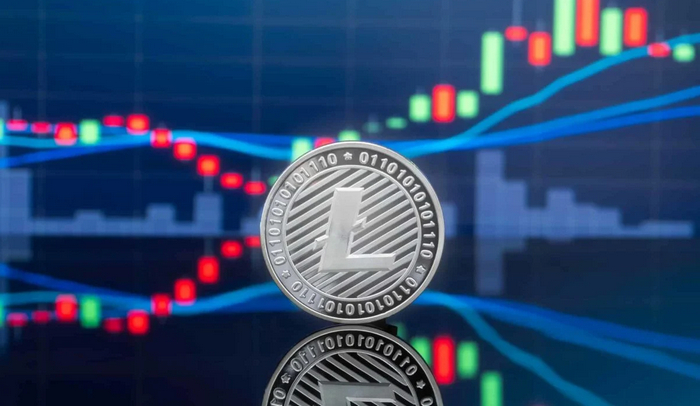-
 Bitcoin
Bitcoin $88,629.0112
1.53% -
 Ethereum
Ethereum $1,633.3416
0.24% -
 Tether USDt
Tether USDt $1.0000
0.01% -
 XRP
XRP $2.0979
-1.08% -
 BNB
BNB $605.5535
0.62% -
 Solana
Solana $140.2764
0.66% -
 USDC
USDC $1.0000
0.01% -
 Dogecoin
Dogecoin $0.1643
1.41% -
 TRON
TRON $0.2438
0.47% -
 Cardano
Cardano $0.6391
-0.43% -
 Chainlink
Chainlink $13.4401
-0.21% -
 Avalanche
Avalanche $20.3874
-0.96% -
 UNUS SED LEO
UNUS SED LEO $8.8373
-2.11% -
 Stellar
Stellar $0.2496
-3.26% -
 Sui
Sui $2.3313
3.08% -
 Shiba Inu
Shiba Inu $0.0...01260
-0.18% -
 Hedera
Hedera $0.1732
1.55% -
 Toncoin
Toncoin $2.9117
-3.34% -
 Bitcoin Cash
Bitcoin Cash $346.5808
1.81% -
 Hyperliquid
Hyperliquid $18.4964
3.15% -
 Litecoin
Litecoin $79.8162
-0.77% -
 Polkadot
Polkadot $3.7801
-3.27% -
 Dai
Dai $1.0000
0.00% -
 Bitget Token
Bitget Token $4.4558
-0.32% -
 Ethena USDe
Ethena USDe $0.9992
0.01% -
 Pi
Pi $0.6369
0.62% -
 Monero
Monero $217.7312
1.28% -
 Pepe
Pepe $0.0...08147
2.99% -
 Uniswap
Uniswap $5.4346
0.09% -
 Aptos
Aptos $4.9660
-4.00%
What is LTC coin? What is LTC coin
Litecoin, a fork of Bitcoin, offers faster transactions with lower fees, making it suitable for everyday use.
Oct 07, 2024 at 08:23 am

1. What is LTC Coin?
Litecoin (LTC) is a cryptocurrency and a blockchain that is a fork of the Bitcoin blockchain. It was created in 2011 by Charlie Lee, a former Google engineer and Litecoin Foundation director. LTC has a faster transaction time and a lower transaction fee than Bitcoin. It is often used for everyday transactions, where Bitcoin is more suited to store value.
2. History of LTC Coin
- October 2011: Litecoin was created by Charlie Lee, a former Google engineer.
- November 2013: Litecoin was added to the Coinbase exchange.
- May 2017: Litecoin reached an all-time high price of $84.24.
- December 2017: Litecoin reached a market capitalization of over $10 billion.
- 2023: Litecoin is still one of the top 20 cryptocurrencies by market capitalization.
3. Features of LTC Coin
- Faster transaction time: Litecoin has a block time of 2.5 minutes, compared to Bitcoin's 10 minutes. This means that Litecoin transactions are confirmed faster, making it more suitable for everyday use.
- Lower transaction fee: Litecoin's transaction fee is typically lower than Bitcoin's. This makes it more affordable to use for small transactions.
- Larger supply: Litecoin has a maximum supply of 84 million coins, compared to Bitcoin's 21 million. This means that there is more room for LTC to grow in value in the future.
- SegWit activation: Litecoin was one of the first cryptocurrencies to activate SegWit, which is a technology that helps to improve the scalability of the blockchain.
- Atomic swaps: Litecoin supports atomic swaps, which allow for the direct exchange of different cryptocurrencies without the need for a third party.
4. Conclusion
Litecoin is a popular cryptocurrency that has been around for over a decade. It has a number of advantages over Bitcoin, including faster transaction times, lower transaction fees, a larger supply, and SegWit activation. Litecoin is still one of the top 20 cryptocurrencies by market capitalization and is a promising investment for the future.
Disclaimer:info@kdj.com
The information provided is not trading advice. kdj.com does not assume any responsibility for any investments made based on the information provided in this article. Cryptocurrencies are highly volatile and it is highly recommended that you invest with caution after thorough research!
If you believe that the content used on this website infringes your copyright, please contact us immediately (info@kdj.com) and we will delete it promptly.
- From a Coin That Wasn't Supposed to Exist to Another That Got Melted Down
- 2025-04-22 21:00:12
- 3 Cryptos to Buy Now Before Parabolic Gains Hit
- 2025-04-22 21:00:12
- Coinbase Derivatives launches XRP-Future contracts, approved by the American Commodity Futures Trading Commission (CFTC)
- 2025-04-22 20:55:13
- Amp (AMP) price prediction: Can this token continue its bullish run?
- 2025-04-22 20:55:13
- Trump Establishes a Limited Bitcoin Strategic Reserve via Executive Order
- 2025-04-22 20:50:12
- Meme Coin Did Not Ruin This Cycle, But Instead Accelerated the Maturity of the Industry as a Market Catalyst
- 2025-04-22 20:50:12
Related knowledge

What is Ethereum’s Slashing mechanism and how to punish malicious behavior?
Feb 20,2025 at 03:08am
Key PointsOverview of slashingDifferent types of slashing in EthereumIncentives and consequences of slashingIdentifying and reporting slashed validatorsOngoing discussions and potential improvementsEthereum's Slashing Mechanism: Punishing Malicious BehaviorEthereum's slashing mechanism is an essential tool for ensuring network security and punishing mal...

What is the verifier node of Ethereum and how to become a verifier?
Feb 19,2025 at 06:00pm
The Verifier Node of Ethereum: A Comprehensive GuideKey Points:What is a Verifier Node?How to Become a Verifier NodeResponsibilities and Rewards of a Verifier NodeMinimum Requirements for Becoming a Verifier NodePotential Difficulties in Running a Verifier Node1. What is a Verifier Node?A Verifier Node is an independent entity on the Ethereum network th...

What is Ethereum’s staking, and how to participate and earn money?
Feb 19,2025 at 04:37pm
Key Points:Understanding Ethereum's Staking MechanismSteps to Participate in StakingBenefits and Rewards of StakingSecurity and Risk ConsiderationsTechnical Requirements and Hardware OptionsPotential Challenges and Troubleshooting TipsFAQs on Ethereum StakingWhat is Ethereum's Staking?Proof-of-Stake (PoS) is a consensus mechanism used in blockchain netw...

What is Ethereum’s DAO (Decentralized Autonomous Organization) and how does it work?
Feb 20,2025 at 03:12am
Key PointsDefinition and Structure of a DAOGovernance and Decision-Making in DAOsBenefits and Use Cases of DAOsChallenges and Limitations of DAOsWhat is Ethereum's DAO (Decentralized Autonomous Organization) and How Does It Work?Definition and Structure of a DAOA Decentralized Autonomous Organization (DAO) is an innovative governance and management fram...

What is Ethereum's multi-signature wallet and how to improve security?
Feb 20,2025 at 02:18pm
Key Points:Understanding the Concept of a Multi-Signature WalletBenefits and Drawbacks of Multisig WalletsRequirements for Setting Up a Multisig WalletStep-by-Step Guide to Generating a Multisig WalletImplementing Strategies for Enhanced Security1. Understanding the Concept of a Multi-Signature WalletA multi-signature (multisig) wallet in the Ethereum e...

What is Ethereum's oracle and how to provide data for smart contracts?
Feb 21,2025 at 01:30am
Key Points:Understanding the concept of oracles in EthereumExploring different types of oraclesDetailed guide on how to provide data for smart contractsAddressing potential challenges and considerationsWhat is Ethereum's Oracle?Oracles are crucial components in the Ethereum ecosystem, enabling smart contracts to access real-world data and off-chain even...

What is Ethereum’s Slashing mechanism and how to punish malicious behavior?
Feb 20,2025 at 03:08am
Key PointsOverview of slashingDifferent types of slashing in EthereumIncentives and consequences of slashingIdentifying and reporting slashed validatorsOngoing discussions and potential improvementsEthereum's Slashing Mechanism: Punishing Malicious BehaviorEthereum's slashing mechanism is an essential tool for ensuring network security and punishing mal...

What is the verifier node of Ethereum and how to become a verifier?
Feb 19,2025 at 06:00pm
The Verifier Node of Ethereum: A Comprehensive GuideKey Points:What is a Verifier Node?How to Become a Verifier NodeResponsibilities and Rewards of a Verifier NodeMinimum Requirements for Becoming a Verifier NodePotential Difficulties in Running a Verifier Node1. What is a Verifier Node?A Verifier Node is an independent entity on the Ethereum network th...

What is Ethereum’s staking, and how to participate and earn money?
Feb 19,2025 at 04:37pm
Key Points:Understanding Ethereum's Staking MechanismSteps to Participate in StakingBenefits and Rewards of StakingSecurity and Risk ConsiderationsTechnical Requirements and Hardware OptionsPotential Challenges and Troubleshooting TipsFAQs on Ethereum StakingWhat is Ethereum's Staking?Proof-of-Stake (PoS) is a consensus mechanism used in blockchain netw...

What is Ethereum’s DAO (Decentralized Autonomous Organization) and how does it work?
Feb 20,2025 at 03:12am
Key PointsDefinition and Structure of a DAOGovernance and Decision-Making in DAOsBenefits and Use Cases of DAOsChallenges and Limitations of DAOsWhat is Ethereum's DAO (Decentralized Autonomous Organization) and How Does It Work?Definition and Structure of a DAOA Decentralized Autonomous Organization (DAO) is an innovative governance and management fram...

What is Ethereum's multi-signature wallet and how to improve security?
Feb 20,2025 at 02:18pm
Key Points:Understanding the Concept of a Multi-Signature WalletBenefits and Drawbacks of Multisig WalletsRequirements for Setting Up a Multisig WalletStep-by-Step Guide to Generating a Multisig WalletImplementing Strategies for Enhanced Security1. Understanding the Concept of a Multi-Signature WalletA multi-signature (multisig) wallet in the Ethereum e...

What is Ethereum's oracle and how to provide data for smart contracts?
Feb 21,2025 at 01:30am
Key Points:Understanding the concept of oracles in EthereumExploring different types of oraclesDetailed guide on how to provide data for smart contractsAddressing potential challenges and considerationsWhat is Ethereum's Oracle?Oracles are crucial components in the Ethereum ecosystem, enabling smart contracts to access real-world data and off-chain even...
See all articles























































































